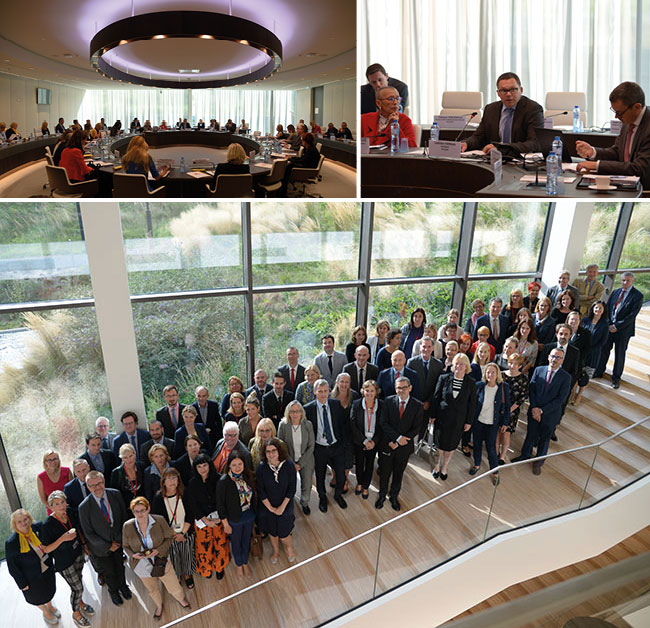Eurojust, the European Union's judicial cooperation agency, plays an important role in facilitating the issuing and execution of mutual recognition instruments, including the European Investigation Order (EIO). Eurojust provides support and advice to national authorities in all four stages of the life cycle of the EIO: drafting (content and form), issuance and transmission, facilitation of communication during the recognition phase, and assistance in overcoming difficulties in the execution phase.
On 19 and 20 September, practitioners from all over the European Union, as well as Eurojust College Members and staff, representatives from the Council, Commission and academia, met at Eurojust in plenary sessions and workshops to discuss potential problems and challenges related to the functioning of the EIO. The meeting provided a forum for practitioners to identify several practical and legal issues in the application of the EIO, to exchange experience and best practice, and to discuss how Eurojust can further support the national authorities. Participants envisaged that the support and involvement of Eurojust in relation to EIOs may be even higher than that provided in relation to MLA requests, as more consultations are foreseen in the EIO Directive. While participants acknowledged that 'direct contact' among judicial authorities is the core principle of the Directive, they also underlined the important coordinating role of Eurojust in complex and multilateral cases. Whenever any of the multiple consultation procedures provided in the Directive are triggered, the bridge-making role of Eurojust can facilitate the communication between the judicial authorities involved.
The outcome of the workshops of the meeting will be shared with the Consultative Forum of Prosecutors General and Directors of Public Prosecutions of the Member States of the European Union (the 'Consultative Forum') in view of their meeting on 19 October 2018.
Background
The European Investigation Order Directive is a core instrument in judicial cooperation in the European Union. It introduced a single, standard form for obtaining evidence, strict deadlines and limited possibilities for refusal. Denmark and Ireland are not bound by the Directive.


